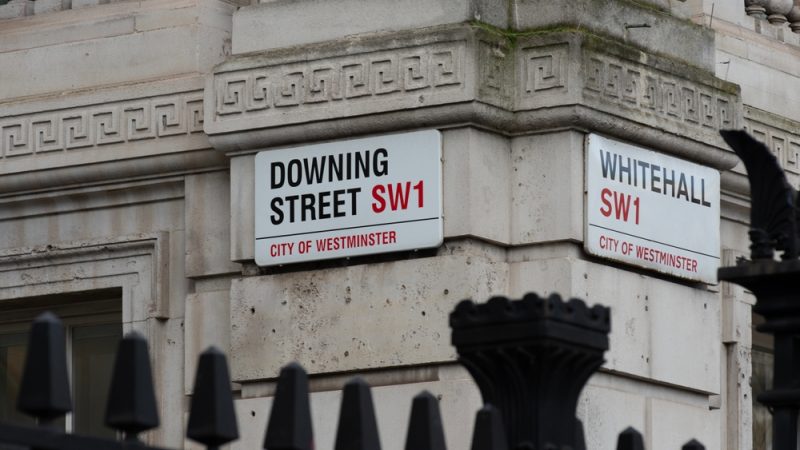
A wealth tax on high earners, rejoining the single market and scrapping the two-child benefit cap are among the progressive policies most supported by Labour members, an exclusive poll has revealed.
An exclusive poll for LabourList conducted by Survation poll found the three policies were the most favoured by those surveyed, when asked to pick only one progressive policy for the government to enact.
A wealth tax on the top one percent of earners was supported by one in five (25%) of members, followed by rejoining the EU’s single market (22%) and scrapping the two-child benefit cap (21%) – a measure that both deputy leadership candidates have expressed support for.
Backing for a wealth tax was the top priority among those who backed Rebecca Long-Bailey in the 2020 leadership election, with 37% supporting the policy, while supporters of Keir Starmer ranked rejoining the single market as their most favoured progressive policy (30%). Those who supported Lisa Nandy favoured scrapping the two-child benefit cap (29%).
Among other policies included in the poll, just over one in ten (12%) Labour members expressed support for a windfall tax on the banking industry and big tech companies, 10% backed the suspension of all arms sales to Israel and just seven percent supported the nationalisation of water companies when forced to choose only one progressive policy to enact.
By region, members in both the North East and North West, alongside those in South East England, Wales and the East Midlands opted for a wealth tax in our poll, with members in Yorkshire and the Humber, the West Midlands and London favouring scrapping the two-child benefit cap. Labour members in the South West and East of England opted for rejoining the single market, while Scotland supported a windfall tax on the banking and tech industries.
READ MORE: Chancellor to scrap pointless paperwork in bonfire of business bureaucracy
Emma Burnell, editor of LabourList, said: “Labour is being forced to make difficult choices in government to deal with the inheritance of Tory misrule and the economic damage of Brexit. By asking them to prioritise which policies to focus on, we get a sense of how Labour members want to see the government approach these choices.
“A wealth tax is not in opposition to scrapping the two-child benefit cap – in fact many would argue that the former would give the Treasury the fiscal headroom to enact the latter. Where Labour might struggle is with the politics of combining these measures and the impact that might have on their narrative around growth, productivity and being business-friendly.
“The breakdown of the results by candidate could be seen to demonstrate bluntly the differing politics of the hard left – with a focus on direct wealth redistribution; the soft left – with a focus on a strong safety net and combating poverty; and the moderate wing of the party whose focus on Brexit is in line with Labour’s more pro-business element.
“Rachel Reeves will be seeking first and foremost to produce a budget that improves growth and productivity. But she will also need a narrative about what that growth is for and where the measures needed will come from. ‘Country first, party second’ is the right approach for a serious governing party. But that party element can’t be forgotten just because it comes second.
“Here Labour members have made clear what their priorities are – I hope the Chancellor is listening.”
Subscribe here to our daily newsletter roundup of Labour news, analysis and comment– and follow us on Bluesky, WhatsApp, X and Facebook.
The poll is the latest in a series of regular polls LabourList is publishing in partnership with leading pollsters Survation, a member of the British Polling Council and a Market Research Society Partner.
Survation surveyed 1,254 readers of LabourList, the leading dedicated newsletter and news and comment website for Labour supporters, who also said they were Labour Party members between September 23 and 25.
Data was weighted to the profile of party members by age, sex, region and 2020 Labour leadership vote, targets for which were derived from the British Election Study and the results of the 2020 leadership election.
Share your thoughts. Contribute on this story or tell your own by writing to our Editor. The best letters every week will be published on the site. Find out how to get your letter published.
-
- SHARE: If you have anything to share that we should be looking into or publishing about this story – or any other topic involving Labour– contact us (strictly anonymously if you wish) at [email protected].
- SUBSCRIBE: Sign up to LabourList’s morning email here for the best briefing on everything Labour, every weekday morning.
- DONATE: If you value our work, please chip in a few pounds a week and become one of our supporters, helping sustain and expand our coverage.
- PARTNER: If you or your organisation might be interested in partnering with us on sponsored events or projects, email [email protected].
- ADVERTISE: If your organisation would like to advertise or run sponsored pieces on LabourList‘s daily newsletter or website, contact our exclusive ad partners Total Politics at [email protected].




More from LabourList
‘Why solidarity with Ukraine still matters’
‘Ukraine is Europe’s frontier – and Labour must stay resolute in its defence’
Vast majority of Labour members back defence spending boost and NATO membership – poll